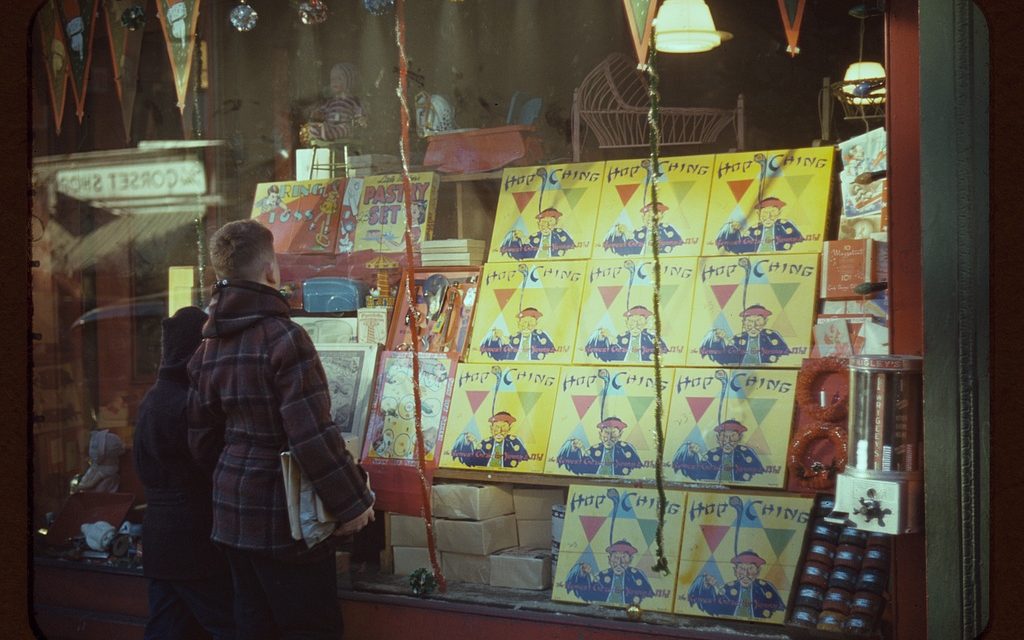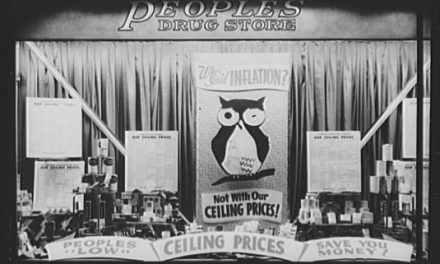Last-minute Christmas shoppers hunting for candy and chocolates will be hard-pressed to find them in stores this year. Sweets, among other commodities such as metals, rubber, and even Christmas trees are part of the shortages that America faces this holiday season.
Candy is low in stock because it is to be supplied heavily to the troops this Christmas, both at home and abroad. The Quartermaster Corps will be distributing 20 pounds of assorted hard candy for each 100 men for Christmas dinner, leaving each man one-fifth of a pound of candy.
“Candy is to be served as regular mess to United States soldiers, both in continental United States and overseas, at dinner on Christmas,” said Captain H.L. Moffet, assistant of the Quartermaster General.
Civilians, however, will not be faring quite as well with candy. Stores across the country have been limiting sales per customer in order to make their stock last longer, after having their supplies of sugar and chocolate cut by the government. However, many stores have already sold out and closed early. Candy makers have been limited to 70 percent of the amount of sugar compared to last year for the civilian population. This, along with a lack of other candy material such as coconut, fats, oils, and dairy products, has caused manufacturing problems and shortages. The rising cost of fruits and nuts has also contributed to the shortages.
Another government intervention that has led to candy shortages is that sweets have been classified as a luxury product, rather than a basic food. Manufacturers hoping to change Washington’s classification have organized the Council on Candy as Food in the War Effort. Candy ranks ninth among the country’s food manufacturing trades and is responsible for producing $400 million worth of products annually.
Many other foods are becoming scarce. Meat shortages will hit the holiday season hard, with large cities such as Detroit facing a practically meatless Christmas. Butter and lard are also in short supply, and civilians are expecting an egg shortage soon. These shortages may be relieved with recent government restrictions on items such as heavy cream and ice cream.
Metal shortages will also affect the holiday season. Christmas toys are made almost entirely of wood; things such as sleds that would normally have steel runners will now be equipped with waxed wooden runners to conserve steel. Most toys with metal, such as electric trains, were ordered by store owners earlier in the year after correct estimates that there would be shortages.
Even Christmas trees may be in short supply this year, as transportation difficulties, labor shortages, and trucking restrictions make it difficult to transport the trees from Pacific forests to the East Coast.
Despite all the shortages, it looks like the country will have a wonderful Christmas—children especially. Toy stores have reported doing more business than ever before, saying that many parents bought toys off the shelves without even looking at the price tags.
“It is the factory workers who are buying, mostly,” one buyer explained. “They have lots of money; they can’t spend it on cars, they can’t go off on trips. But this Christmas, at any rate, their children are going to have the best of everything.”
Some children are sharing their good fortune with others by donating to the Neediest Cases Fund, an organization that provides services and security to homeless, disabled, and any other children living in poverty. The fund said it has received many contributions from children.
Hundreds of families in Washington, D.C. also hoped to spread joy by opening their homes to warworkers and servicemen, through the “Share Your Home at Christmas” project, sponsored by the Federation of Churches’ Defense Commission.

Children gaze at a toy store display window. From Library of Congress.
Sources:
Haller, Ellis. “Christmas Candy: It May Not Be Enough To Meet All Demands From Civilians, Army; Short Supplies of Cocoa, Sugar, Oils and Dairy Products Are Troublesome; Inventory Lowest in Years.” The Wall Street Journal, December 16, 1942, p 1.
“Christmas Candy – Chocolate Scarce as Butter in Cleveland: Merchants Adopt ‘Rule of Thumb’ Rationing – Other Delicacies Used as Substitutes.” The Wall Street Journal, December 24, 1942, p 1.
“CHICAGO CANDY STORES SELL OUT AND CLOSE EARLY.” Chicago Daily Tribune, December 25, 1942, p 17.
Linton, Margaret. “Many Changes in the Toys for Santa’s Bag Because Of Metal Shortages.” The Philadelphia Inquirer, December 13, 1942, p 151
“Candy Supply Termed Small But ‘Sufficient’.” Chicago Daily Tribune, December 20, 1942, p B7.
“Yultide Trees May Be on Shortage List.” The Washington Post, November 6, 1942, p B8.
“PACKERS ASSURE CHICAGOANS OF CHRISTMAS MEAT: But It Is Different About Butter and Eggs.” Chicago Daily Tribune, December 11, 1942, p 25.
“Christmas Candy For Men in Service.” The Philadelphia Inquirer Public Ledger, December 13, 1942, p 151.
“CHILDREN ARE EAGER TO SHARE YULE JOY: Give Unstingingly as Usual so that Needy Youngers Get Christmas Cheer.” New York Times, December 23, 1942, p 21.
“Sharing Homes at Christmas Brings Joy to Hundreds Here.” The Washington Post, December 26, 1942, p 1.





